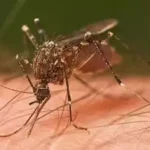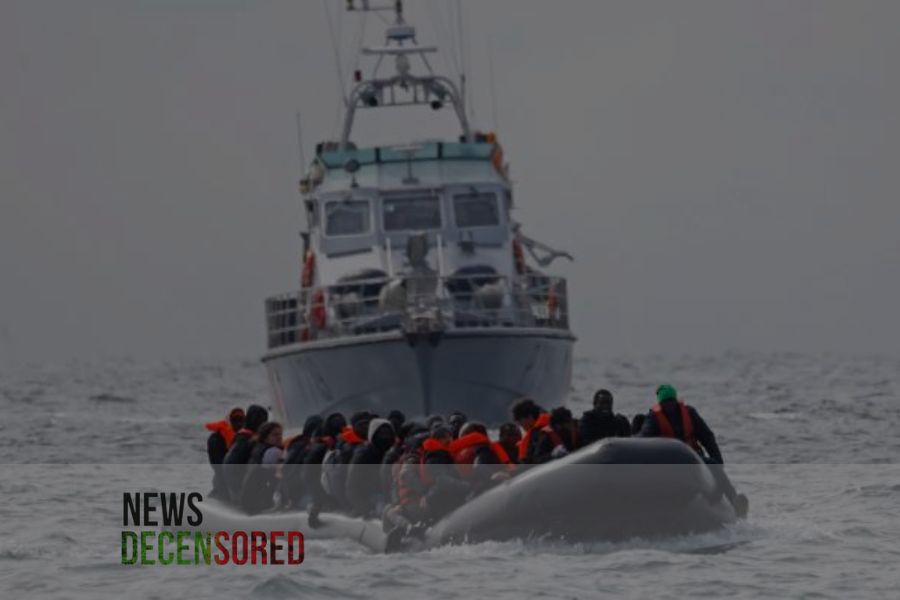A shout shattered the darkness of the French coast near Wimereux. A lone police officer spotted a movement – a mass of people emerging from the dunes overlooking the English Channel. Within seconds, the beach erupted into chaos.
Dozens of police officers raced towards the shoreline, attempting to intercept two groups of migrants illuminated by the pale moonlight. The frantic scene unfolded: young men dragging an inflatable boat towards the water, women struggling to keep pace, then collapsing in tears at the sight of approaching authorities.
Chaos quickly escalated into violence. Migrants hurled fireworks at the police, the beach filled with explosions and thick white smoke. As desperation mounted, the crowd huddled around the inflatable boat, fiercely guarding it from police intervention. Several men with large sticks circled the group, menacingly brandishing makeshift weapons.
Barely two minutes had passed since the initial sighting, and the flimsy boat was already in the water, precariously overloaded with people scrambling aboard.
“What else could we do?” a police officer on the scene lamented. “Going after them in the water is not an option. We saw they had weapons, and there were children, too. We had to be cautious.”
Police managed to apprehend a suspected smuggler, while others who couldn’t secure a spot on the boat waded back onto the shore. Even from afar, the tension onboard was evident. Shouting and jostling pierced the night as more than 100 people crammed into a vessel typically designed for a maximum of 60.
A young child in a pink coat, perched precariously on someone’s shoulders, epitomised the problematic situation. Others clung desperately to the edges, their faces etched with hope and fear.
“England, to my family,” an Iraqi man on the shore muttered in despair, defeated after failing to secure a spot on the overcrowded vessel.
As dawn painted the eastern sky a soft pink, the overloaded boat bobbed precariously towards the horizon. Back on the beach, a sense of unease lingered. The full extent of the tragedy was yet to unfold. Distant shouts and a few life jackets spotted in the water were the only hints of the disaster brewing at sea.
Meanwhile, a French rescue vessel patrolling nearby launched its boats, likely attempting to persuade the overloaded vessel to abandon the crossing. The grim reality materialised later – five lives were lost during the chaotic scramble to board the boat. Tragically, two drowned, and three others were trampled to death in the frenzy. One of the victims – a young child – would never see their intended destination.
News of the deaths spread like wildfire amongst other migrants, many abandoning their attempts to cross the Channel. However, the allure of a better life proved too strong for many others.
“Nothing can stop me,” declared a Sudanese student, resolute in his pursuit of reaching England. “This is my last chance.” This sentiment resonated with Idris, a 24-year-old Afghan, who revealed his 15th attempt at the perilous journey.
“Just last week, ten police officers were injured and seven vehicles damaged,” a police commissioner lamented. “The situation is deteriorating rapidly. We need more resources – courage alone won’t suffice.”
Adding to the complexity is a recent surge in migrants, mainly from Vietnam. One group encountered near Calais, seemingly unaware of their location, explained their escape from debt at the hands of local gangsters. Kurdish smugglers, preying on their desperation, promised passage to England and employment opportunities.
As long as desperation thrives and safe routes remain elusive, these perilous journeys will continue, leaving a trail of shattered dreams and lost lives in their wake.















